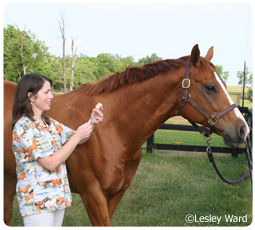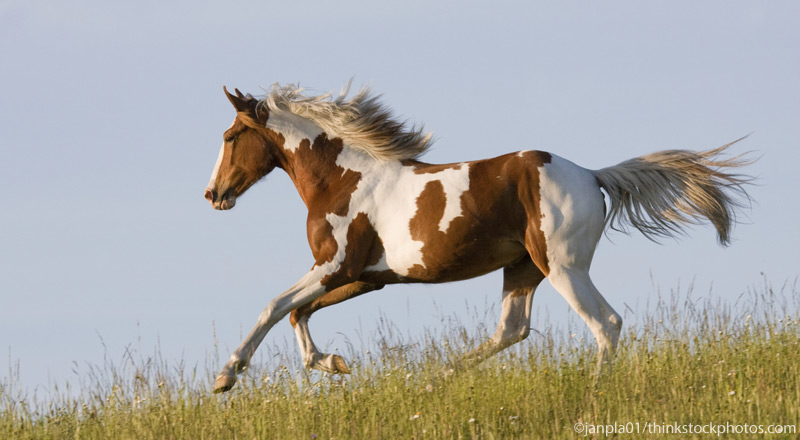 |
| Rabies is always fatal and there is no treatment once an animal is infected. However, a safe and effective vaccine is available for horses. |
From the Colorado Department of Agriculture
The Colorado Department of Agriculture is encouraging livestock and pet owners to discuss animal health concerns, including the need for rabies vaccination, with their local veterinarian after a horse in Logan County was euthanized and subsequently tested positive for rabies.
“The department would like to stress two very important points,” said State Veterinarian, Dr. Keith Roehr. “One: owners should monitor their animals for clinical signs of rabies; and two: local veterinarians are a valuable resource to help producers decide the best course of action to protect their livestock and pets from rabies.”
Livestock and pet owners are encouraged to discuss vaccination with their veterinarian for animals that could be exposed to wildlife that carry and could transmit the rabies virus to dogs, cats, horses, small ruminants, llamas, alpacas, and petting zoo animals.
Rabies is a viral disease infecting the brain and central nervous system. The clinical appearance of rabies typically falls into two types: “aggressive” and “dumb.” Aggressive rabies symptoms include combativeness and violent behavior and sensitivity to touch and other kinds of stimulation. There is also a “dumb” form of the disease in which the animal is lethargic, weak in one or more limbs, and unable to raise its head or make sounds because its throat and neck muscles are paralyzed.
Rabies can be passed from animals to humans. Rabies is spread primarily through the bite of rabid animals, resulting in the spread of the disease through their infected saliva. Rabies also can be spread when saliva from an infected animal gets into open wounds, cuts or enters through membranes of the eyes, nose or mouth. No cure exists for rabies once symptoms appear although there is a vaccine to prevent the infection.
“Animal owners need to primarily look for any dramatic behavioral changes. That is typically one of the hallmark signs that the animal may be suffering from rabies,” said Roehr.
Examples of unusual behavior include: wild mammals that show no fear of people and pets; nocturnal animals that are active in daylight; and bats found on the ground, in swimming pools or that have been caught by a pet. Rabid carnivores, such as skunks, foxes, bobcats, coyotes, dogs and cats, may become aggressive and may attempt to bite people, pets and livestock.
Colorado Horse Tests Positive for EIA
EIA is an equid disease that may cause fever, anemia, fluid accumulation on the chest or legs, and emaciation in some animals. The virus can also cross the placental barrier to cause fetal infection. Many horses do not show any clinical signs of disease or have very mild signs on first exposure, and carry the virus subclinically. All infected horses, including those that are asymptomatic, are potential carriers and are considered infectious for life. Infected animals must either be destroyed or remain permanently isolated from other equids to prevent transmission. There is currently no vaccine to protect a horse against EIA.
The herd mates to this horse have tested negative to EIA and neighboring horses will be tested to rule out any spread by insect vector.
“Identifying infected horses and restricting their contact with susceptible animals is the key to preventing the spread of this disease,” said Roehr. “EIA is transmitted through biting flies, the most common would be deer and horse flies; horse owners can protect their herd by control biting flies around the stable and other areas where horses are kept.”
A blood test to detect the disease is called a Coggins test and it is required for equids entering Colorado and is recommended for all horses that change ownership or attend equine events.
Watch for news updates from the Colorado Department of Agriculture at www.colorado.gov/ag.
Further Reading
Horse owners reminded to vaccinate on World Rabies Day






something else to think about
y
No one around here vaccinates their horses for rabies. It’s not a big threat here. Thank goodness!
Rabies shots are very cheap protection, for what you “could” lose.